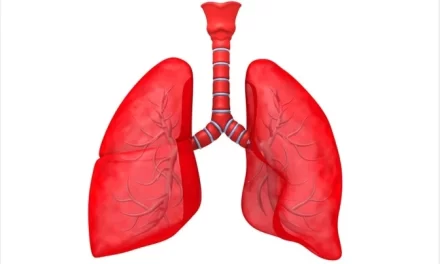Focusing on past experiences and sources of personal strength can help you identify resilience-building strategies that work for you. Explore the answers to the following questions about yourself and your reactions to the challenges in your life. This exercise can help you discover how to respond effectively to complex events.
Consider the following:
What types of events have you found most challenging?
How have these events affected you?
When you are stressed, has it been helpful to think about the critical people in your life?
When faced with a problematic experience, who have, you turned to for help?
What have you learned about yourself and your interactions with others during challenging times?
Has offering support to others who are going through a similar experience helped you?
Have you been able to overcome the obstacles, and if so, how?
What has helped you feel more hopeful about the future?Maintain an attitude of tolerance and flexibility
Resilience involves maintaining flexibility and balance in your life as you face difficult circumstances and traumatic events. You can do this in several ways by:
Allow yourself to experience strong emotions and also recognize when you have to avoid them to keep functioning.
Get ahead and take action to address your problems and face the demands of daily life. Also, take a step back to rest and recharge.
Spend time with loved ones to receive their support and encouragement, as well as their care.
Trust others and also trust yourself.Places to seek help
Getting help when you need it is crucial to building resilience. Beyond family and friends, people find help in:
Self-help and support groups. These community groups can help people struggling with difficulties such as the loss of a loved one. By sharing information, ideas, and emotions, people in groups can help themselves and find support by acknowledging that they are not alone in this challenging situation.
Books and publications are written by people who have successfully managed adverse situations, such as surviving cancer. These stories can motivate readers to find strategies that can help them personally.
Online resources. Information on web pages can be a source of ideas. You have to be careful with the quality of the information, as it varies depending on the pages you consult.
For many people, using their resources and the types of help we’ve mentioned can be enough to build resilience. However, on some occasions, a person may not advance or have difficulty progressing on the path of resilience.
A licensed psychology professional such as a psychologist can assist individuals in developing an appropriate strategy for coping. You must get professional help if you feel that you cannot function or perform the basic activities of daily living due to a traumatic or stressful experience, such as surviving a hurricane.
Different people tend to be comfortable with different styles of interaction. A person can feel comfortable and establish rapport and empathy by working with a mental health professional or participating in a support group.
The meaning of resilience is people’s ability to recover from difficult situations and move forward into the future. These people take advantage of the difficulties or traumas they experience to obtain a benefit to obtain valuable resources for the future. They are usually also people with extraordinary cognitive abilities.
What are resilient people?
At Ecoembes, we think that a resilient person or resilient people such as those capable of facing adverse situations and even benefit from them. People who fit this description have a long way to go, both personally and professionally. Like Nelson Mandela, when he said, “I never lose; I either win, or I learn,” resilient people show that they can come out of difficult moments unscathed and also value learning from bad experiences.
The meaning of resilience is people’s ability to recover from difficult situations and move forward into the future. These people take advantage of the difficulties or traumas they experience to obtain a benefit to obtain valuable resources for the future. They are usually also people with extraordinary cognitive abilities.
Those are resilient people.
At Ecoembes, we think that a resilient person or resilient people such as those capable of facing adverse situations and even benefit from them. People who fit this description have a long way to go, both personally and professionally. Like Nelson Mandela, when he said, “I never lose; I either win or I learn,” resilient people show that they can come out of difficult moments unscathed and also value learning from bad experiences.
But how do you know if you are resilient yourself? What characterize it? For this post, we have collected ten skills of people who learned to be resilient.
Qualities of a resilient person
Adopt a positive attitude
Knowing how to manage emotions is critical to face any obstacle that gets in the way. As Ellis’s ABC theory suggests – in which “A” represents events, “B” represents thoughts and “C” represents emotions – what conditions how we feel (C) are not the things that happen to us (A ), but our way of perceiving them (B). Therefore, we have a high capacity to determine how we feel, only attending to how we understand what is happening.
Be realistic
Acting like a positive person does not mean being overly optimistic. Sometimes, there are difficult or extreme situations that cannot be contemplated in a naive way, as they are painful, and accepting the difficulty of those moments can serve to know how to act accordingly. It is simply a matter of relativizing and trying to think of solutions, not problems.
Use humor
It can be a very effective tool for downplaying things and relaxing in times of stress. As long as it is spontaneous and natural – therefore not forced or to make people laugh at all costs – humor can be a precious resource.
Challenge yourself
Accepting that there are limits to everything does not mean that we have to agree with their existence. Challenges help us move what we thought were our barriers a little further and explore possible hitherto unknown faculties of our personality along the way. Resilient people see problems as opportunities to challenge and rediscover themselves.
Have autonomy
The frustration in many cases derives from the lack of control over a specific situation. Feeling helpless about an issue that matters to us can cause stress and discomfort. These people tend to have self-confidence, believing in our resilience to influence what happens.
Know yourself
Recognizing what the main strengths and abilities of oneself and the weaknesses are is key to identifying what we can improve and how we can rebuild ourselves so that we are more comfortable. The resilient person may have moments of decline, but he lifts himself and strengthens his self-esteem in the effort. This must learn to unlearn and not to take everything for granted. Every day you can find different ways to deal with the same issue.
Cultivate empathy
Knowing how to put yourself in the place of the other, to get an idea of how they can feel, is also a sign of resilience. Being empathetic helps us separate thought from action and brings us humanly closer to the person we may be having a problem with. Even, who knows, perhaps that lack of understanding could lead to a beautiful future friendship.
Value friendships
Social support is essential and resilient people know it. To do this, they choose to surround themselves with positive people who bring out the best in them and with whom they enjoy and learn, which does not automatically exclude those who are going through a rough patch or have some negative moments.





